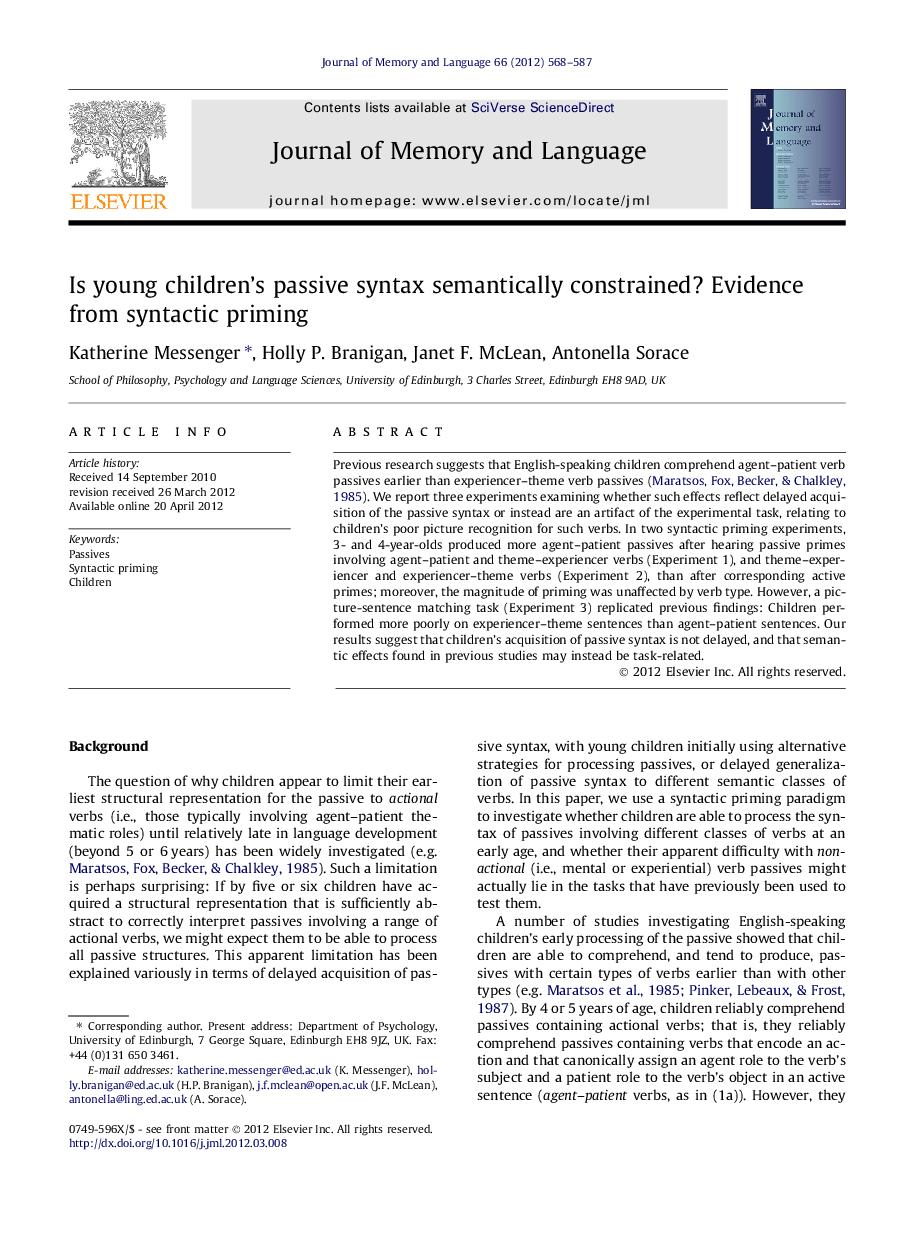| کد مقاله | کد نشریه | سال انتشار | مقاله انگلیسی | نسخه تمام متن |
|---|---|---|---|---|
| 931935 | 923051 | 2012 | 20 صفحه PDF | دانلود رایگان |

Previous research suggests that English-speaking children comprehend agent–patient verb passives earlier than experiencer–theme verb passives (Maratsos, Fox, Becker, & Chalkley, 1985). We report three experiments examining whether such effects reflect delayed acquisition of the passive syntax or instead are an artifact of the experimental task, relating to children’s poor picture recognition for such verbs. In two syntactic priming experiments, 3- and 4-year-olds produced more agent–patient passives after hearing passive primes involving agent–patient and theme–experiencer verbs (Experiment 1), and theme–experiencer and experiencer–theme verbs (Experiment 2), than after corresponding active primes; moreover, the magnitude of priming was unaffected by verb type. However, a picture-sentence matching task (Experiment 3) replicated previous findings: Children performed more poorly on experiencer–theme sentences than agent–patient sentences. Our results suggest that children’s acquisition of passive syntax is not delayed, and that semantic effects found in previous studies may instead be task-related.
► Four-year-olds and adults described transitive events in two syntactic priming games.
► Participants heard agent–patient, theme–experiencer and experiencer–theme primes.
► Participants produced more passives after passive primes irrespective of verb type.
► A forced-choice comprehension test of such sentences showed an effect of verb type.
► Effects of verb type may reflect a task confound not delayed passive syntax.
Journal: Journal of Memory and Language - Volume 66, Issue 4, May 2012, Pages 568–587